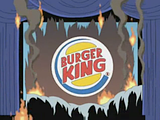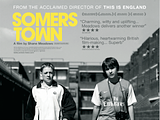Brands Offer a New Way to Fund Projects
Brands have established a history of sponsoring Hollywood cinema, with names like Ray Ban, Reeses Pieces and Aston Martin making cameo appearances in memorable blockbuster films. But today’s brand marketeers are having to look beyond simple motion picture product placement in order to remain visible and reach their increasingly fragmented audiences. Advertisers wanting to make a deeper connection with consumers have gone so far as to sponsor entire web series, integrate their brands into popular online content, and completely fund feature films. As a consequence of the growing popularity of branded entertainment, there are more opportunities than ever for independents to finance their projects through brand partnerships.

Seth MacFarlane's Cavalcade of Cartoon Comedy
For example, last year, Family Guy creator Seth MacFarlane launched a series of branded animated shorts called Seth MacFarlane’s Cavalcade of Cartoon Comedy. These comic sketches, all under two minutes, were launched on YouTube and also distributed via Google’s AdSense network, reaching across thousands of websites to target Seth’s core audience. Burger King was the first sponsor and actively promoted the episodes on its corporate website. Since then, Seth has used other brands to fund his creative content, always integrating the brand into a pre-roll animation so that the advertising appears organic. The series has been extremely successful, collectively gaining over 14 million views within the first month online. Other popular examples of branded web series are Rhett McLaughlin & Link Neal‘s Alka-Seltzer sponsored Great American Road Trip and Owen Benjamin & James Boyd’s CBS multi-brand sponsored Heckle U.

Cadbury in KateModern
Brand integration is also a option for content creators who have already built an online following and could benefit from additional sponsorship funding. As a result of the success of lonelygirl15, its creators received venture capital funding to set up EQAL studios and continue producing original interactive content. In July 2007, Miles Beckett and Gregg Goodfriend launched their first spin-off show, KateModern, on Bebo. With a massive fan following from lonelygirl15, the new London-based series was able to charge brands such as Proctor & Gamble, Microsoft, Warner Music, Paramount and Orange up to £250,000 each to appear in some of the 155 episodes of the first season. The episodes, which lasted between one and four minutes each, ran over the course of six months and collectively averaged 1.5 million views per week. The sponsorship success continued into the second season, as the producers secured funding from brands such as Cadbury’s Cream Egg and Toyota’s Aygo. All brands were integrated into the storyline and charged according to the number of times they were mentioned or appeared in the videos.

Eurostar Financed Somers Town
While exploring new models of advertising, brands have recently even gone so far as to fund feature films. Most notably, Eurostar gave critically acclaimed director Shane Meadows a budget of £500,000 to direct his feature Somers Town. Although there has been some debate in the press about Eurostar’s commercial influence on the film, Somers Town has illustrated that corporate funded projects can have artistic integrity — if the brand integration is done subtly and the director maintains creative freedom. As there is no mention of Eurostar in the opening credits or any appearance of its logo in the film, the audience has little idea that Eurostar funded the project. However, the film still captures many key elements of the Eurostar brand because its story takes place around London’s St. Pancras station and the characters travel to Paris by train. Another example of a corporate financed feature film that contains no visible sign of the brand is First Descent. Mountain Dew, a PepsiCo brand, invested nearly $4 million in the snowboarding documentary, which only offered a reference to “MD Films” in the opening titles and special thanks to Mountain Dew and PepsiCo in the closing credits. As brands explore new models of advertising, filmmakers now have the possibility of raising an entire feature budget through brand sponsorship.

Axe Sponsored Webisode
With the decreasing value of the 30 second commercial spot, advertising agencies are having to think outside the box to engage audiences in branded entertainment. Although Bartle Bogle Hegarty (BBH) has been in the business for more than 25 years, it still remains on the cutting-edge of new media marketing. Evidence lies in BBH’s credit as the first advertising agency to exist within the virtual reality world of Second Life. Mark Boyd, Head of Creative Content at BBH, spoke on a panel at PTTP’s 2008 London Forum. Mark explained how BBH created a dedicated channel for Audi, called Audi TV, to engage Audi’s target audience (of about 100,000 potential buyers) and create a message for the brand. BBH also created a campaign to promote Axe‘s Snake Peel Shower Scrub, which involved a half-hour special called Exposing The Order of The Serpentine. The mock news story, which gained about 512,000 views when it first aired on Spike TV, exposed a secret society that relied on an orange liquid to help guys wash away the shame of poor pick-up choices. Such successful campaigns show the appeal of branded entertainment and the growing number of opportunities for creatives who are open to collaborating with brands.
 Catering to this emerging market, PlaceVine launched in October 2008, just days before Co-Founder Adam Erlebacher spoke about it in The New Cross Platform Financiers session at PTTP’s London Conference. PlaceVine is a platform that enables content producers to directly contact brands and agencies interested in brand integration opportunities. Currently, there are more than 300 top content producers and 200 brands and agencies using the site. About 60% of the opportunities available are for in-kind donations of services, products or locations, but the number of opportunities for paid product placement or paid sponsorship is growing. Content producers have the advantage of using the platform for free to profile the projects they hope to create, enabling relevant brands to come to them with sponsorship propositions. The key is finding a good pairing, as Adam explains, “PlaceVine’s goal is to make it efficient and cost effective for producers to connect to a larger universe of these brands, enabling filmmakers to execute their vision, not compromise it.” PlaceVine was recently awarded NYCSeed venture capital funding to expand its services.
Catering to this emerging market, PlaceVine launched in October 2008, just days before Co-Founder Adam Erlebacher spoke about it in The New Cross Platform Financiers session at PTTP’s London Conference. PlaceVine is a platform that enables content producers to directly contact brands and agencies interested in brand integration opportunities. Currently, there are more than 300 top content producers and 200 brands and agencies using the site. About 60% of the opportunities available are for in-kind donations of services, products or locations, but the number of opportunities for paid product placement or paid sponsorship is growing. Content producers have the advantage of using the platform for free to profile the projects they hope to create, enabling relevant brands to come to them with sponsorship propositions. The key is finding a good pairing, as Adam explains, “PlaceVine’s goal is to make it efficient and cost effective for producers to connect to a larger universe of these brands, enabling filmmakers to execute their vision, not compromise it.” PlaceVine was recently awarded NYCSeed venture capital funding to expand its services.
With the diminishing value of television and print advertising, brand marketeers are looking for new ways to engage audiences. Fortunately, independents can now easily take advantage of these opportunities by seeking brand partnerships through PlaceVine or similar online services such as Poptent (a subsidiary of XLNTads) and Storybids. For more information about brand funding opportunities, check out PTTP’s panel discussion Showing the Money: Brands Financing Content, which took place as part of the London Forum last October. Digital Media Strategist Inma Martinez moderated the event that features Adam Erlebacher (PlaceVine), Mark Boyd (BBH), Jason Kemp (Radical Media) and Alex Kummerman (Clicmobile).